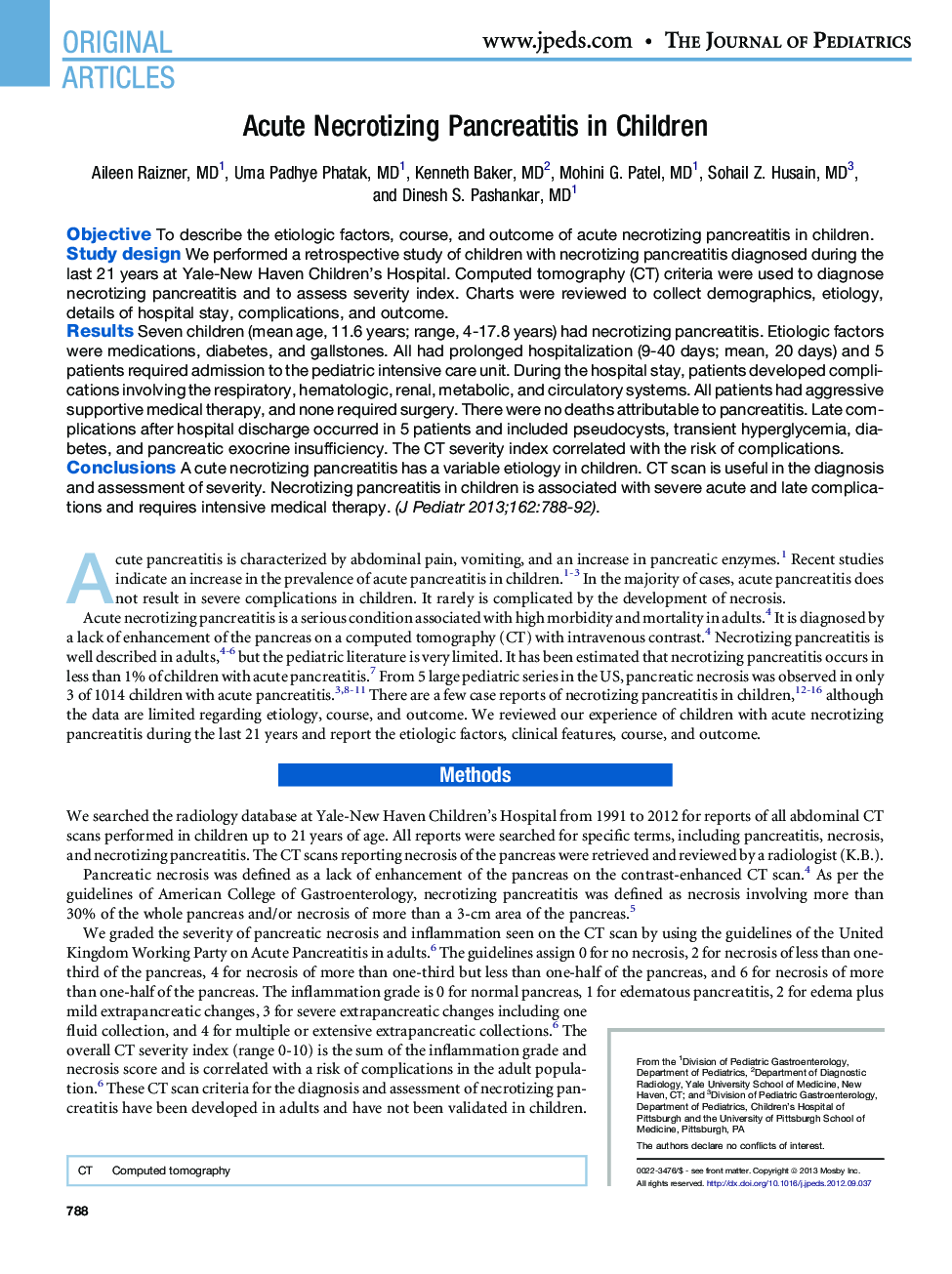| Article ID | Journal | Published Year | Pages | File Type |
|---|---|---|---|---|
| 6224008 | The Journal of Pediatrics | 2013 | 5 Pages |
ObjectiveTo describe the etiologic factors, course, and outcome of acute necrotizing pancreatitis in children.Study designWe performed a retrospective study of children with necrotizing pancreatitis diagnosed during the last 21 years at Yale-New Haven Children's Hospital. Computed tomography (CT) criteria were used to diagnose necrotizing pancreatitis and to assess severity index. Charts were reviewed to collect demographics, etiology, details of hospital stay, complications, and outcome.ResultsSeven children (mean age, 11.6 years; range, 4-17.8 years) had necrotizing pancreatitis. Etiologic factors were medications, diabetes, and gallstones. All had prolonged hospitalization (9-40 days; mean, 20 days) and 5 patients required admission to the pediatric intensive care unit. During the hospital stay, patients developed complications involving the respiratory, hematologic, renal, metabolic, and circulatory systems. All patients had aggressive supportive medical therapy, and none required surgery. There were no deaths attributable to pancreatitis. Late complications after hospital discharge occurred in 5 patients and included pseudocysts, transient hyperglycemia, diabetes, and pancreatic exocrine insufficiency. The CT severity index correlated with the risk of complications.ConclusionsA cute necrotizing pancreatitis has a variable etiology in children. CT scan is useful in the diagnosis and assessment of severity. Necrotizing pancreatitis in children is associated with severe acute and late complications and requires intensive medical therapy.
